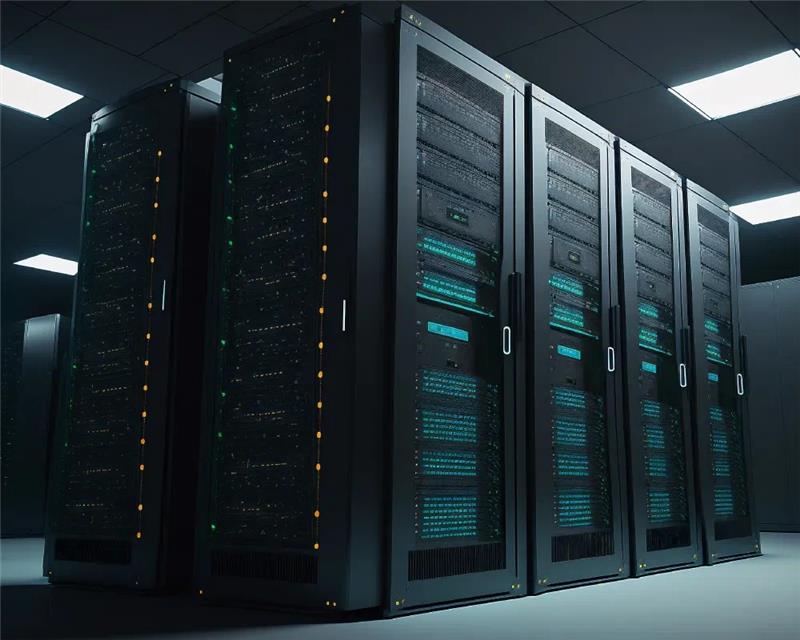Every business today runs on data. From small offices to large enterprises, servers are the heart that keeps operations alive. A good server computer is more than just a machine. It stores data, handles requests, and keeps teams connected. When a business chooses the right server, it gains speed, safety and stability. But when it chooses the wrong one, performance drops and costs rise. That is why knowing what makes a server powerful is so important.
Each server feature has a unique role in keeping business data safe and operations smooth. From fast processors to reliable backup systems, every part matters. Understanding these features helps businesses make smart investments that last for years. This guide explains seven critical server computer features every business must know.
Let’s talk!!
1. Powerful Processor for Smooth Performance
The processor is the brain of the server computer because it handles every task that runs through the system. A strong processor means faster performance and better response time. Businesses should always look for multi-core processors.
Why Processor Power Matters
- It boosts speed during heavy workloads.
- It supports more users at the same time.
- It helps handle complex software easily.
A fast processor saves time and reduces frustration. It allows teams to work without delays. When businesses choose a server with a strong CPU, they get stability and lasting value.
Image Source: Pinterest
2. Sufficient RAM for Faster Data Access
RAM is like the short-term memory of a server. It holds data that the processor needs quickly. When there is more RAM in a server, it can take on more processes at one time without degradation of performance
A server with low RAM faces lag and slower operations. That can hurt productivity.
Benefits of More RAM
- Faster loading and data transfer.
- Better multitasking capability.
- Smoother user experience even during heavy use.
RAM and processor work hand in hand. When both are powerful, servers respond fast and stay stable under pressure.
3. Reliable Storage for Data Safety
Storage is where all business information lives. Choosing the right storage system keeps data safe and accessible.
There are two main types of storage. HDDs and SSDs both have their pros and cons. The HDDs can be considered cheaper and larger in memory, yet their speed is a disadvantage. On the other hand, the SSDs are fast, reliable, and, therefore, pricey. However, the majority of modern-day servers are opting for SSDs in order to gain the advantage of speed.
Key Benefits of SSD Storage
- Faster boot and file access.
- Lower power use.
- Higher reliability with less risk of failure.
Some businesses use both SSD and HDD. SSDs handle active tasks while HDDs store backup data. This balance saves cost and improves performance.
A solid storage system supports growth. It keeps files safe and reduces downtime. But storage alone is not enough. Servers also need ways to stay online even during power issues or hardware failures.
4. Redundant Power and Network Systems
Every business fears downtime. Redundant Power Supply Units (PSUs) allow one power source to take over when the other fails.
Advantages of Redundant Systems
- Less downtime during technical problems.
- Higher reliability in daily operations.
- Better protection from power or hardware issues.
This feature brings peace of mind. It means the business stays connected no matter what happens.
5. Advanced Cooling and Security Systems
A proper cooling system helps servers run smoothly for longer hours. Modern servers come with intelligent cooling fans and temperature sensors. These systems adjust fan speed automatically to maintain ideal conditions.
Security Matters Too
Just like cooling protects hardware security protects data.
- Efficient cooling prevents shutdowns.
- Security tools protect data from threats.
- Both together ensure continuous performance.
6. Scalability for Future Growth
Every growing business faces new data challenges. Scalability helps servers adjust to those changes. A scalable server allows adding more storage RAM or processors without replacement.
- It helps you save huge amounts of business costs.
- It supports new technologies easily.
- It prevents performance drops as the business expands.
Scalable servers give freedom. Businesses can start small and upgrade step by step. This flexibility ensures that the investment stays relevant for years.
Image Source: Yandex
7. Dependable Backup and Disaster Recovery
Data loss can be a disaster for a company; thus, reliable backup systems are a must. An effective backup strategy comprises the possession of copies stored both onsite and remotely.
Cloud backups add extra safety by storing copies online. In case of any failure, recovery becomes easy and fast.
Benefits of Strong Backup Systems
- Continuous data protection.
- Fast recovery after technical issues.
- Less risk of permanent data loss.
Many businesses use automated backup tools. These run in the background without disturbing daily work. That means files stay updated and safe at all times.
Conclusion
A server computer is more than hardware. It is the core that supports business success. Each feature, from processor power to disaster recovery, plays a key role. When all these features work together, servers deliver speed, security, and stability.
Businesses that invest in the right server build a strong digital future. They handle data better, serve clients faster, and stay ready for any challenge. Choosing a server with these seven critical features is not just smart but essential. It keeps every business connected, confident, and ready to grow.

